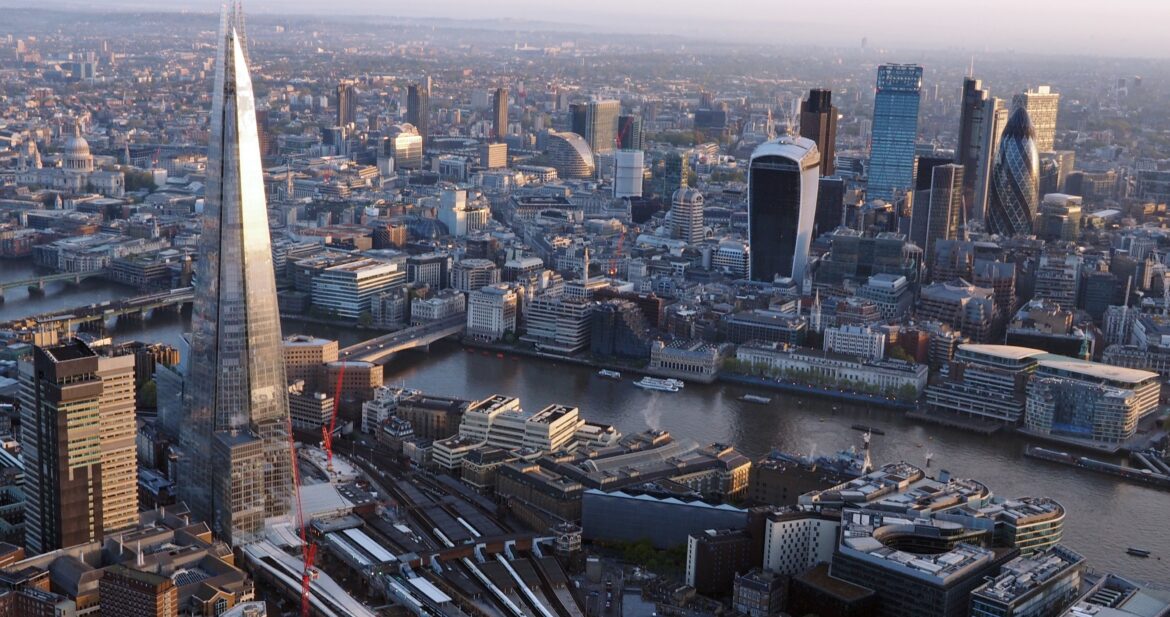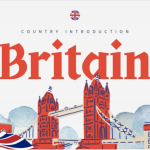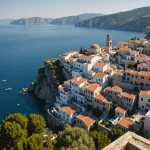Luke Cloherty
Wealthy Arab nationals relocating and investing abroad tend to look in the areas where capital investment is thriving and property prices are growing. Metropolitan districts, with their vibrant arts scenes, top class restaurants, financial hubs and institutions, universities and luxury shopping are always a big draw.
Each issue in Citizenship by Investment we will look at one city in a country with good citizenship opportunities and what it can bring in terms of investment and relocation as well as discussing the past, the present and the future of the area. First up, it’s London – the capital of the United Kingdom and the financial centre of the World.
London: Quick Facts
Population: Approximately 9 million.
Size: 27 miles west to east (calculated straight line air distance from Uxbridge in the west to Epping in the East).
Official Language(s) Spoken: English.
Unofficial Languages Spoken: Over 300.
Number of Universities: 43.
World Heritage Sites: Four – Tower of London; Kew Gardens; Palace of Westminster, Westminster Abbey; St Margaret’s Church.
Administration Centres: Houses of Parliament (whole of UK); City Hall (London only)
Main Industries: Arts, commerce, education, entertainment, fashion, finance, healthcare, media, professional services, research and development, tourism, and transport.
Foreign Policy ‘Global Cities Index’ Ranking: 2.
Global Economic Power Index Ranking: 2.
Global Power City Ranking: 1.
‘The Wealth Report’ Ranking: 1.
Globalization and World Cities Research Network Rating: Alpha ++.
Tired of London, Tired of Life
The history of London is a long, convoluted affair, dating back to the Roman age. Full of indiscretions and romanticism, old London is a rich area of study. From the high life of its aristocracy to the low life of the poor in its heyday in the industrial revolution, the city has undergone huge transformations throughout that history and is now recognized, along with New York City, Singapore, Hong Kong, Shanghai and Paris as one of the World’s leading global cities.
London, a city that started out as one square mile that has now sprawled to approximately 27 miles from west to east, is a huge, wealthy and highly desirable city. Its arts institutions, entertainment centres, restaurants, financial headquarters and property profitability rank it as alongside New York City for what one may term, for want of a better phrase, the best city in the World. Indeed, London and New York City are the only two cities in the World to have achieved an Alpha ++ rating from the Globalization and World Cities Research Network.
London is constantly busy and forever buzzing, seemingly never pausing to take breath. Wealth is created and then spent and the city’s economic health is extremely good to say the least. Its architecture, a mixture of beautiful old stone relics and flashy new glass constructs, with some Victorian brick in-between is a representation of its history and constant ability to move with the times. From Christopher Wren’s glorious St. Paul’s Cathedral in The City to Nicholas Hawksmoor’s stunning Christ Church at Spitalfields to Norman Foster and Ken Shuttleworth’s The Gherkin, there really is no other city quite like London Architecturally.
Culturally, London is a hotbed. It has a huge variety of foreign residents and visitors and never quite feels like England, as such, due to this. Londoners themselves are known to be fast-talking and abrupt, somewhat business minded and unforgiving in their tone towards those in their way, but also are always comical and generally exciting and entertaining company.
Perhaps, though, it is best left to the great English writer, Samuel Johnson, to put it in his oft-quoted comment “Why, Sir, you find no man, at all intellectual, who is willing to leave London. No, Sir, when a man is tired of London, he is tired of life; for there is in London all that life can afford.”
The Pull for Wealthy Arabs
For high-net worth Arabs, London is a serious attraction. It has a large Arabic population and a highly tolerant attitude towards foreign investors and visitors. It has wonderful investment opportunities, including some of the World’s most expensive property portfolios, financial institutions’ European or World headquarters in two financial hubs (the City of London and Canary Wharf) and some of the World’s top art auction houses, including Sotheby’s, Christies and Bonham’s.
As a place of residence, the inner western district of the city is seemingly where Arabs like to invest. The highly affluent areas of Chelsea, Knightsbridge, Kensington, Notting Hill, Mayfair, Marylebone and Maida Vale have all seen huge influxes of foreign property investment from high-net worth Arabs over the past 20 years. Traditionally, the Edgware Road, placed handily in-between Marylebone and Maida Vale has been a hub for London’s Arabic community and today this is no different, with the road basically being a stretch of Middle Eastern restaurants, shisha bars and tea and coffee houses.
London also presents investors with many growth areas for investment. Its technology and digital media hub, based around the East End and to the north of the Old Street roundabout is growing so quickly that many see it outpacing Silicon Valley. Google has opened an office there, with various other tech multinationals already there or following suit.
Just to the North-West of the Old Street roundabout lies the King’s Cross district, an area rich in new property developments whose prices are rising apace. The regeneration of St Pancras Station in King’s Cross from suburban rail centre to the UK’s international rail travel portal has helped here. The station is now London’s city centre stop for the Eurostar, with train arrivals from and departures to Paris and Brussels every day. As such, the whole concourse has been upgraded, having already been one of the most beautiful railway stations to be found anywhere anyway, it now houses various luxury goods shops, including a Fortnum & Mason’s outlet (the Queen of England’s store of choice for goods, no less). Nine Elms in Battersea, just south of Chelsea, is currently undergoing a huge transformation and is being hailed as ‘the new Knightsbridge’ across the city – the US Embassy is to move there and property development in the area is happening radily.
The UK’s economy has bounced back quite remarkably from the global economic crash of 2008 and the country is a G7 member with the fasting growing economy within that particular group of countries. Much of this success has been down to operations in London – the country’s financial centre and, indeed, its centre for most other industries.
For any high-net worth Arab considering citizenship by investment opportunities, the UK, and particularly London, is always in the top two or three choices. When one considers the return on investment and quality of life available, it is really a no-brainer as to why.
Education
As we’ll discuss in an article later on in this issue, education is a massive driving force behind the decision-making process of many Arabs looking to invest for citizenship purposes.
London has more universities than any other metropolitan district in the World, with a staggering 43 institutions across the city. A large intake of foreign students also points to it being a city of choice for a plethora of students looking overseas and, indeed, parents looking to send their children there.
Ultimately, though, for those looking for citizenship by investment, it makes complete sense to invest in London should you wish to send your children to University in England. As a citizen, students are charged tuition fees, but these pale into comparison with those charged to overseas students. Also, it is far easier to go to an English university when you are already a British citizen. Although the overseas intake is high, it is also extremely competitive.
The UK also boasts some of the World’ best universities, including Oxford, Cambridge and the London School of Economics, which are all based in England (English and Welsh universities are governed by a different body to those in Scotland and Northern Ireland respectively).
The EU Factor
The UK is a part of the European Union and one of the most powerful member states. Vociferous in voice in Brussels, it holds a major influence on decision making in the union along with Germany and France.
As a UK citizen, and thus an EU member, one is afforded the privilege of free flow immigration and as many trips to as many destinations within the EU as one wishes. What this means, basically, is that as a bona-fide UK citizen and a London influencer, you can travel to Germany, Belgium, France, The Netherlands and various other states in the region as many times as you wish.
You also have the free will to travel to these countries and open up business headquarters and start new business ventures there without the requirement of a Visa.
The US Factor
As a citizen of the UK you also enjoy easier travel and work opportunities in the US than you would as a citizen of an Arab state only. First and foremost, the US and the UK are close political allies, which means the US government looks upon British nationals relatively favourably as candidates for Visas.
Yes, a VISA is still required for stays of more than 90 days and for professional relocations, but, with a UK passport, attainment of these documents is far easier than with many other passports.
This is London Calling
London, as we can see, presents itself as a hugely attractive proposition for citizenship by investment purposes. As arguably the World’s number one city, with great lifestyle pulls and great ties with the EU and the US, it is easy to see why London is so loved by high-net worth Arab investors.





